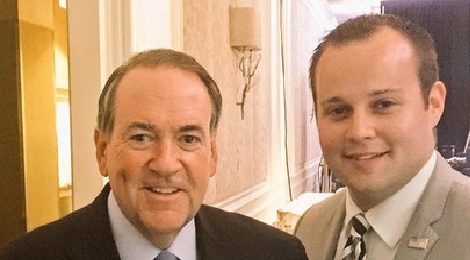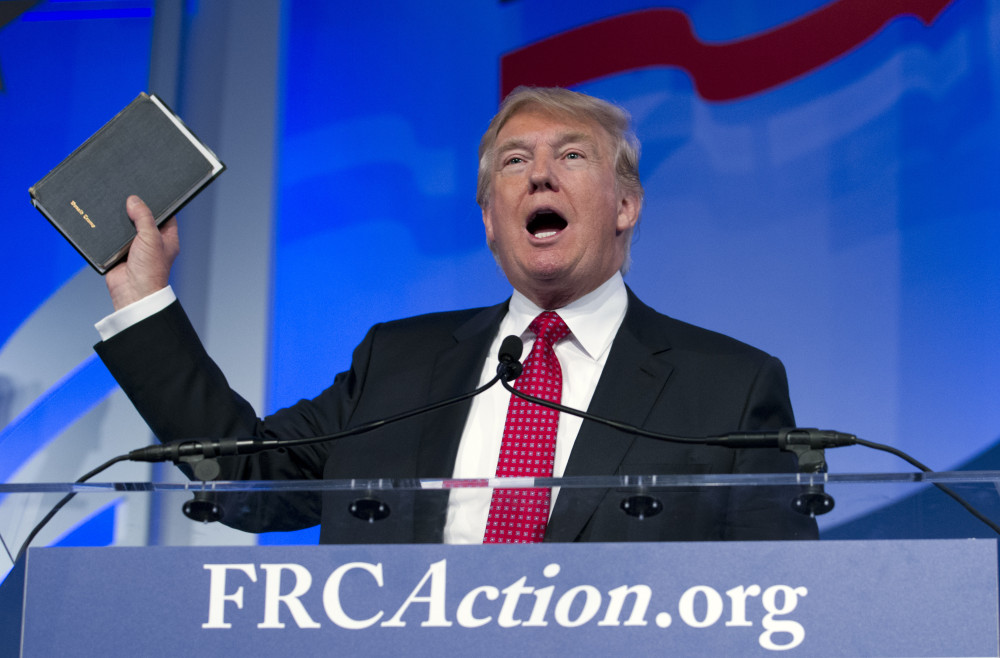We understand how difficult it might be for Religious Right activists to find cases of “anti-Christian persecution” in the U.S., especially for people like Todd Starnes and Bryan Fischer, who have done their best to rile up Christian conservatives in an effort to depict themselves as the truly marginalized and victimized class in America.
Kelly Shackelford of Liberty Institute tried his best at the Values Voter Summit last week — just as he did at last year’s summit — to portray America as a country that is no different than the former Soviet Union in how it treats Christians.
Shackelford whipped out a mix of new and old “persecution” cases. He told the crowd, for instance, that his organization had defended “senior citizens who were told that their federally funded meals were being taken away because they were praying over their meals and that would violate the separation of church and state.” Unsurprisingly, that’s just not true. As Chris Rodda pointed out after Shackelford told this story at an event last year, what actually happened was that back in 2003 three senior citizens in a Texas town complained that a city-owned senior center was hosting pastors and gospel bands during meal hours. The city council tried, in a move that was ultimately rejected in court, to restrict such activity — it did not take away anyone’s meals.
Shackelford then went on to allege that a Florida college professor directed his students to step on a sheet of paper with “Jesus” written on it. The lesson in question was created by a professor from St. Norbert College, a Catholic institution in Wisconsin, and was not about religion at all, but rather the importance of symbols:
One of the “most distinguishing features” of humans (compared to other animals) is the way they view symbols, some of which are quite powerful, he said. That’s the message of the exercise. When the students hesitate to step on the word “Jesus,” they understand that a piece of paper has meaning to them because of the word, which helps them understand the force of symbols, he added.
…
At St. Norbert, [Jim] Neuliep said he has been doing the exercise for 30 years — without any complaints. He said that the discussion that follows tends to involve students “talking about how important Jesus is to them, and they defend why they won’t step on it. It reaffirms their faith.” And at the same time, he said, they learn about symbols.
The most dishonest point of Shackelford’s speech, however, was when he described the case of Marco Perez, a Florida father who said his daughter was told by a cafeteria worker that it is “not good” to pray before she eats. At the time, Perez was working to promote Starnes’ book on supposed cases of anti-Christian persecution in America and Starnes was, coincidentally, the first one to report on the story. Starnes did not mention his connection to Perez in his original report, only adding the disclosure later after the connection was revealed.
Shackelford insisted that Perez’s daughter ultimately received an apology for the incident. What he conveniently left out was the fact that the culprit identified by Perez’s daughter wasn’t in or near the cafeteria at the time and the school found no evidence whatsoever of the incident taking place. A spokesman said the school “apologized for the incident she believes occurred, but there was nothing warranted or found” in the investigation. Liberty Institute senior counsel Jeremy Dys, who was representing Perez, at first accepted the school’s apology but then rejected it, saying it wasn’t a “real apology.”
That’s right: Liberty Institute’s senior counsel rejected an apology because the school’s investigation found that the student’s story was baseless, and now this is the same apology that Liberty Institute’s president is citing as proof that the school admitted fault.
Another tale that Shackelford told the Values Voter Summit was that a “girl was punished” for “saying ‘God bless’ and ‘bless you’ when somebody sneezed,” a charge that was denied by girl in question’s the school.
He then brought up the cases of Sgt. Phillip Monk, whose tall tale of “persecution” was roundly debunked when his story fell apart under an Air Force investigation, and Cpt. Wes Modder, whom Shackelford claimed was going to be kicked out of the military simply for opposing same-sex marriage, which, as you may have guessed, was not the case.
If Shackelford wants to find some more false examples of persecution that have been parroted by the Religious Right, we are happy to provide him with further cases, seeing that it seems that he doesn’t mind giving a speech riddled with dishonest claims.








